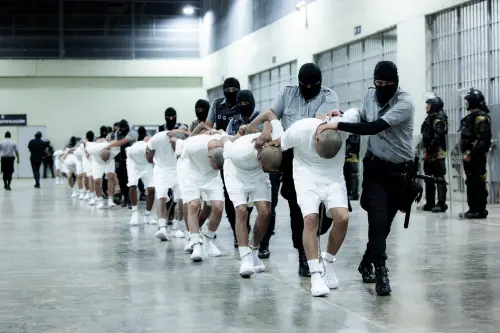A law firm has presented a habeas corpus lawsuit to El Salvador's Supreme Court in defense of 30 Venezuelan citizens jailed in the country’s mega-prison after being deported by the United States. The lawsuit seeks to challenge the legality of their detention, following the U.S. sending 238 Venezuelans to El Salvador, alleging they are members of the Tren de Aragua gang.
The judges handling the case are allies of President Nayib Bukele, who has agreed to house U.S. prisoners in the Salvadoran prison system and has received compensation from the United States for this arrangement.
Lawyer Jaime Ortega stated that while 30 Venezuelan nationals authorized them to represent them, the firm would also request habeas corpus for the remaining Venezuelans detained in the country. “We are demanding first that they be immediately released, and failing that, that there be an orderly and systematic transfer and repatriation as required by our immigration laws,” he added. Ortega's firm was approached to represent the migrants by a committee of family members.
Some 137 members of the Venezuelan group were deported under a little-known U.S. wartime law targeting "alien enemies," which was quickly blocked by a U.S. judge who ordered the flight carrying the Venezuelans to turn back. However, the individuals were subsequently admitted into El Salvador, where they were detained in a massive anti-terrorism prison as part of a deal in which Washington is paying $6 million to the Salvadoran government.
Lawyers and family members of many migrants maintain that they are not affiliated with the Tren de Aragua gang. U.S. Judge James Boasberg ruled that they must be given the opportunity to contest their classification as gang members. The judge also referenced reports of abuse, including beatings, humiliation, inadequate access to food and water, and overcrowding that forces detainees to sleep standing.
El Salvador's presidential office has not commented on the prison conditions.
Located approximately 70 km from the capital, this 23-hectare prison is described by local authorities as the largest in Latin America. The court case arises amidst U.S. policies of mass deportations, which involve agreements for Latin American countries to receive and facilitate the repatriation of deported individuals.
